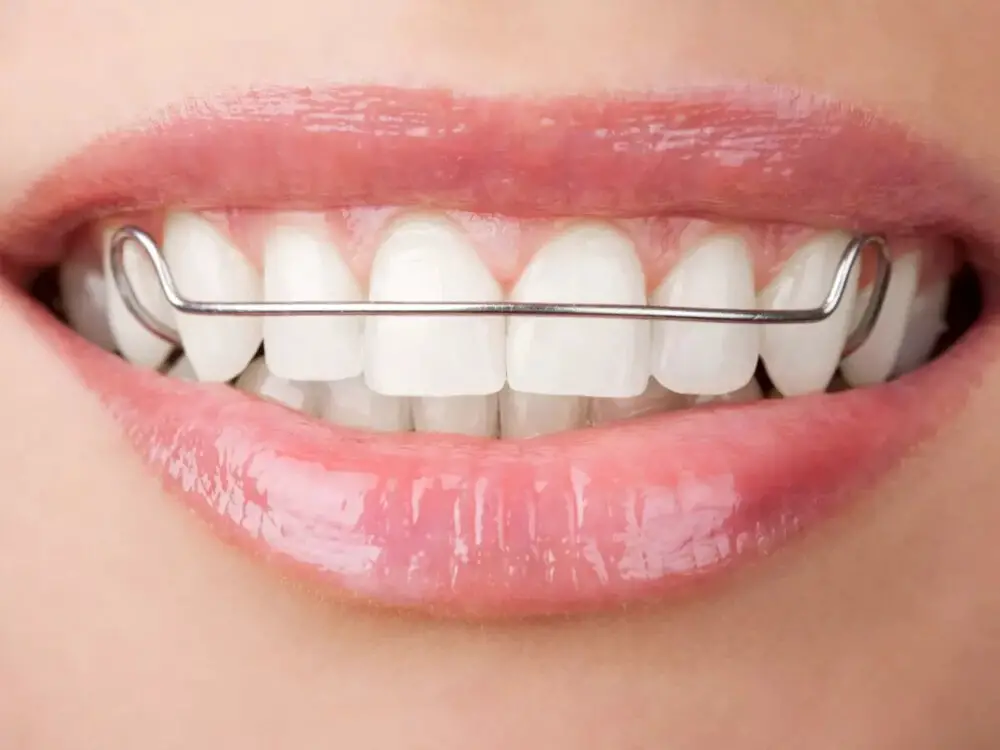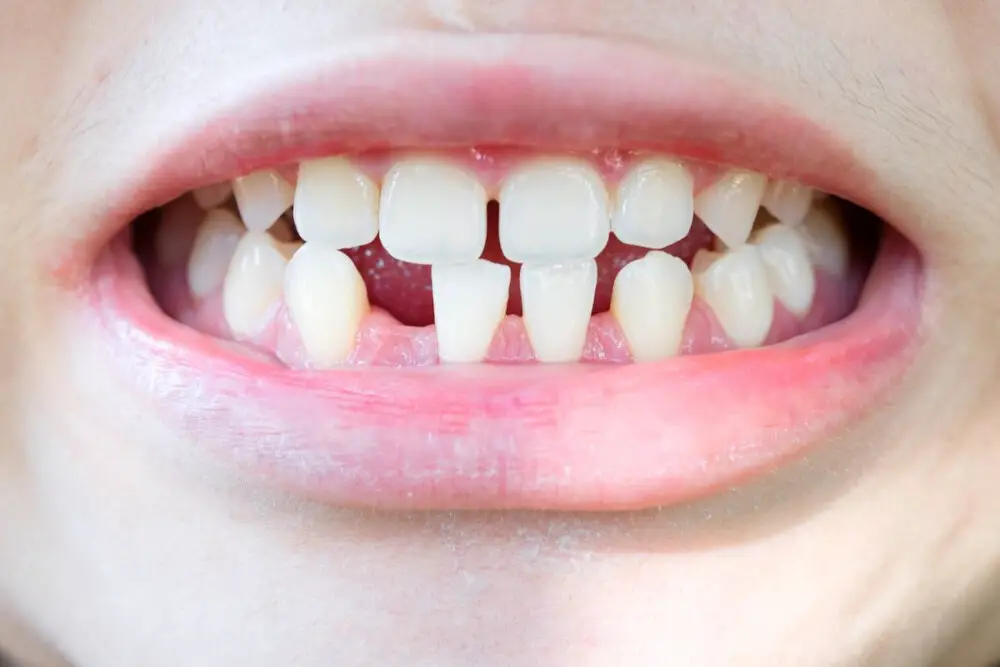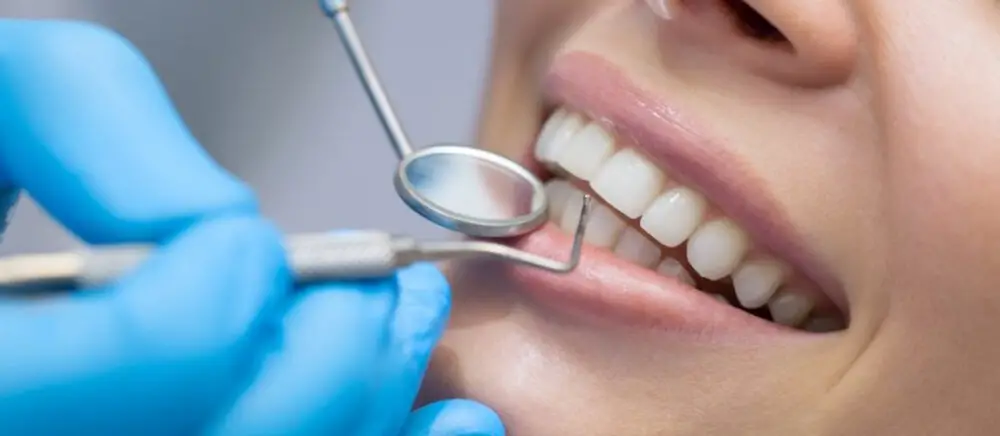Why Do Cats Chatter Their Teeth: The Surprising Reasons Behind This Quirky Behavior

Cats are fascinating creatures that often surprise us with their quirky behaviors and peculiar habits. One of these intriguing behaviors is the chattering or chittering of their teeth, which often catches the attention of cat owners and leaves them wondering what it means. This behavior is characterized by a rapid and repetitive movement of the jaw, resulting in a chattering sound that can be quite distinct. While it may seem like a harmless and amusing quirk, there are actually several reasons why cats chatter their teeth, some of which may surprise you. One of the most common reasons for cat teeth chattering is excitement or anticipation. When a cat sees prey or something that excites them, they may start chattering their teeth in anticipation of the hunt. This behavior is often seen in outdoor cats who enjoy hunting birds, mice, or other small animals. However, even indoor cats may exhibit this behavior when they see a toy or a laser pointer that they enjoy playing with. In such cases, the chattering usually indicates that the cat is eager to play and is excited about the prospect of catching its prey, even if it’s just a toy.
Many cat owners have observed their feline friends engaging in teeth chattering behavior, which is characterized by rapid and repetitive movements of the jaw. While this behavior may seem strange and even concerning to some, it is actually quite common among cats and is thought to be related to their instinctive hunting behavior. Some experts believe that cats chatter their teeth as a way of simulating the movement of prey, or as a means of expressing their excitement or frustration when they are unable to catch their target. Additionally, teeth chattering may be a response to a sudden rush of adrenaline in the cat’s system, perhaps triggered by the sight or smell of prey. Overall, while the exact reasons behind this behavior are not yet fully understood, teeth chattering is considered to be a normal and harmless behavior among cats.
Understanding why cats chatter their teeth is essential for cat owners to ensure their feline friends’ well-being. Chattering teeth is a common behavior in cats, but it can indicate different things, from excitement to frustration. For instance, cats may chatter their teeth when they see prey, indicating their hunting instincts. Alternatively, they may chatter their teeth when they’re unable to reach something, reflecting their frustration. Moreover, chattering teeth can also signal pain or discomfort, requiring immediate attention from a veterinarian. Therefore, it’s crucial to understand the underlying reasons behind cats’ teeth chattering to respond appropriately to their needs and ensure their health and happiness.
Communication

Communication is the key to understanding any behavior, even that of our feline friends. When it comes to cats chattering their teeth, it’s no different. This behavior can be a form of communication between cats or between a cat and their owner. In some cases, cats will chatter their teeth when they see prey, which can be a way to communicate their excitement or anticipation. This behavior can also be seen during playtime, where cats will chatter their teeth as a sign of aggression or dominance. Understanding the context in which your cat is chattering their teeth is essential to deciphering what they are trying to communicate. Another reason why cats may chatter their teeth is due to dental problems. Just like humans, cats can experience dental issues that can cause discomfort or pain. If your cat is chattering their teeth, it could be a sign that they are experiencing dental pain or discomfort. It’s important to take your cat to the vet for regular checkups to ensure they are healthy, including their dental health. Addressing any dental issues early on can prevent further discomfort and improve your cat’s overall well-being.
Cats are known to be very expressive animals and they use a variety of body language cues to communicate with their owners and other felines. One of the most common ways cats communicate is through their tails, which can indicate their mood and level of aggression. For example, a cat with a puffed-up tail is likely feeling threatened or scared, while a relaxed tail indicates that the cat is calm and content. Other body language cues include ear position, eye contact, and vocalizations. By understanding these cues, cat owners can better understand their pet’s emotions and needs, which can help strengthen the bond between them.
Teeth chattering is a unique form of communication that is common in cats. This behavior is often observed when a feline is watching prey, and it is believed to be a form of excitement or frustration. While it may seem unusual, teeth chattering is actually an instinctual behavior that is deeply ingrained in a cat’s genetic makeup. It is thought that this behavior may be a way for cats to communicate with each other, as well as with their prey. Whether it is a sign of excitement, frustration, or simply a way to communicate, teeth chattering is just one of the many quirky and fascinating behaviors that make cats such beloved pets.
Cats are known for their unique and sometimes mysterious behavior, and one such behavior is teeth chattering. Although there is no one definitive answer to why cats chatter their teeth, there are several possible reasons. One reason is excitement or frustration, such as when a cat sees prey but cannot reach it. Another reason could be anxiety or fear, such as when a cat sees a bird outside but is afraid of going outside. Additionally, some cats may chatter their teeth as a way of expressing aggression towards other animals or humans. Whatever the reason for a cat’s teeth chattering, it is clear that this behavior is part of their complex communication system and should be appreciated as such.
Prey Drive

Prey drive is an instinctual behavior that is inherent in all cats, from house cats to big cats in the wild. It is a natural response to the sight, sound, or movement of prey, and it is triggered by the cat’s predatory instincts. When a cat is in prey drive, it is completely focused on the prey, and it will do whatever it takes to catch it. The cat’s body language changes when it is in prey drive; it becomes tense and alert, and its pupils dilate. The cat’s teeth also play a crucial role in prey drive, as it uses them to bite and kill its prey. In domestic cats, prey drive can be triggered by anything from a toy mouse to a fluttering butterfly. When a cat is in prey drive, it may exhibit a variety of behaviors, including crouching, stalking, and pouncing. Some cats may even chatter their teeth in excitement when they are in prey drive. This behavior is thought to be a sign of frustration, as the cat is unable to catch the prey. Chattering is also believed to be a way for the cat to release some of the tension that builds up when it is in prey drive. Overall, prey drive is an important part of a cat’s nature, and it is essential for their survival in the wild.
Cats are natural predators, and their predatory instincts are deeply ingrained in their behavior. These instincts are what drives them to hunt and capture prey, even if they are well-fed and don’t need to hunt for survival. Cats are highly skilled hunters, and their sharp senses and agile bodies make them formidable predators. They have a strong prey drive, which means they are attracted to and motivated by the movement of small animals, such as birds, mice, and insects. When a cat sees prey, its pupils dilate, and its body tenses up, ready to pounce. The chattering of teeth is believed to be a manifestation of this instinct, as cats mimic the movement of their prey with their jaws. This behavior is often seen in indoor cats who are unable to hunt, as they are still driven by their innate instincts.
When a cat sees a bird or a small animal, their prey drive kicks in and they may start to chatter their teeth. This behavior is thought to be a way for the cat to express their excitement and anticipation of catching their prey. The chattering of teeth may also be a way for the cat to mimic the movement of the prey, as if they are preparing to pounce. It’s not just birds or small animals that can trigger this behavior, as some cats may also chatter their teeth when they see toys or other objects that they perceive as prey. Teeth chattering is just one of the many ways that cats express their natural instincts and behaviors.
Cats have a natural hunting instinct, and when they see prey, such as a bird or a mouse, they may start chattering their teeth. This behavior can be observed both in domesticated and wild cats. One of the reasons behind this peculiar behavior is that cats are trying to mimic the sound of their prey, either to lure them closer or to immobilize them. Another explanation is that the chattering of teeth is a way for cats to release their pent-up excitement and frustration as they anticipate catching their prey. Additionally, some experts believe that teeth chattering is a sign of frustration and disappointment, especially when the cat is unable to reach their prey. Overall, teeth chattering is a fascinating behavior that reveals the complex and instinctual nature of cats.
Excitement

Excitement is one of the main reasons why cats chatter their teeth. When cats get excited, they tend to produce a range of vocalizations that include chattering, purring, and meowing. This behavior can be observed in cats that are watching birds from a window or playing with a toy. When they see something they want to catch, their brains get excited, and they start to chatter their teeth. This behavior is also commonly seen in cats that are about to pounce on their prey. The chattering of teeth helps to sharpen their focus and prepare their muscles for action. Moreover, excitement also triggers the cat’s predatory instincts. Cats are natural hunters, and they are hardwired to stalk, pounce, and kill their prey. When they see something that catches their attention, their instincts take over, and they start to chatter their teeth. This behavior is a sign that the cat is fully engaged and focused on the task at hand. It is a crucial part of their hunting process, as it helps them to assess the situation, plan their attack, and execute it with precision. Overall, excitement is an integral part of a cat’s behavior, and chattering their teeth is just one way that they express it.
Cats are known for their quirky behaviors, and one of the most peculiar is teeth chattering. This behavior is often seen when a cat is excited by prey or prey-like objects, such as toys or birds outside. When a cat is feeling excited, its pupils dilate, its ears prick up, and it may begin to chatter its teeth. This behavior is believed to be an involuntary response to the thrill of the hunt or to the anticipation of catching something. The chattering may also be a way for cats to release excess energy and excitement, much like a human might jump up and down or clap their hands. While it may seem strange to us, teeth chattering is just another way that cats express their excitement and love for playtime.
Have you ever observed your feline friend chattering their teeth excitedly while staring out the window? Many cat owners have witnessed this peculiar behavior, and it turns out that it might have a surprising explanation. The chattering of teeth in cats is believed to be related to their predatory instincts. When they see birds or other prey outside, their excitement reaches a fever pitch, and they may begin to chatter their teeth in anticipation of the hunt. This behavior is commonly seen in outdoor cats but can also occur in indoor cats when they see something outside that piques their interest. So, the next time you see your cat chattering their teeth, it might just be a sign that they’re feeling particularly thrilled!
Cats are fascinating creatures, and their behavior can be very intriguing. One of the quirky behaviors that cats exhibit is chattering their teeth, which is a phenomenon that has puzzled many cat owners. Cats might chatter their teeth when they are excited, such as when they see a bird or other prey outside the window. They might also do this when they are playing with a toy or when they are anticipating something, like their favorite treat. Some cats might chatter their teeth when they are feeling frustrated or agitated, like when they are confined to a small space or unable to reach something they want. Whatever the reason, this behavior is a clear indication that your cat is feeling some strong emotions and is worth paying attention to.
Health Issues

When it comes to our feline friends, it’s essential to keep an eye on their health. One of the most common health issues that cats face is dental problems, which can lead to chattering of teeth. Poor oral hygiene in cats can result in plaque buildup, gingivitis, and periodontal disease, which can cause discomfort, pain, and even tooth loss. As a result, cats may start chattering their teeth as a way of coping with the pain and discomfort caused by these dental issues. While chattering teeth may seem like a quirky behavior, it’s essential to address any underlying dental problems to ensure your cat’s overall health and well-being. In addition to dental problems, cats may experience other health issues that can lead to chattering of teeth. For example, cats may chatter their teeth due to stress, anxiety, or excitement. In some cases, cats may even chatter their teeth as a response to certain medications or medical conditions. If you notice your cat chattering their teeth, it’s essential to monitor their behavior and consult with a veterinarian if necessary. By taking proactive steps to address any underlying health issues, you can help ensure that your cat stays healthy and happy for years to come.
Teeth chattering in cats can be a symptom of health issues such as dental problems, pain, and anxiety. If a cat’s teeth are chattering frequently, it may indicate that they have dental issues like gingivitis or tooth decay. Pain can also cause teeth chattering as the cat tries to alleviate the discomfort. Anxiety can be another cause of teeth chattering as cats may clench their jaws and grind their teeth. Therefore, it is important to observe a cat’s behavior and seek veterinary attention if teeth chattering becomes a persistent issue.
Teeth chattering is a quirky behavior in cats that can be caused by various health issues. One of the most common causes is dental problems, such as gingivitis, tooth decay, or periodontal disease. Cats may also chatter their teeth due to pain or discomfort caused by other health issues, such as arthritis or a urinary tract infection. In some cases, teeth chattering can even be a symptom of a neurological disorder, such as epilepsy. If you notice your cat chattering their teeth frequently, it’s important to take them to the vet for a thorough examination to determine the underlying cause and ensure proper treatment.
If you notice your cat chattering their teeth excessively, it’s important to consult a veterinarian as soon as possible. While it may seem like a harmless behavior, it could actually indicate an underlying health issue that requires attention. Cats may chatter their teeth due to dental problems, pain, stress, or neurological issues. A veterinarian can perform a thorough examination to determine the cause of the behavior and provide appropriate treatment. Ignoring this behavior may lead to further health complications and discomfort for your feline friend. Therefore, it’s better to be safe than sorry and seek professional help to ensure your cat remains healthy.
Cats are fascinating creatures, and one of their most intriguing behaviors is the chattering of their teeth. The reasons behind this behavior can vary, but most commonly, cats chatter their teeth when they are excited or stimulated by something they see or hear. It can also be a sign of frustration or anxiety, especially if the cat is unable to reach or catch its prey. Additionally, some experts believe that chattering may be a way for cats to sharpen their teeth, while others suggest it could be a form of communication between cats or a way to express pleasure. Whatever the reason, watching a cat chatter its teeth can be both amusing and fascinating, and it’s just another one of the many quirks that make these animals so intriguing.
Observing a cat’s behavior is essential to determine the cause of teeth chattering. In most cases, this behavior is a result of excitement or frustration. However, it can also signal pain or discomfort, which requires immediate attention. By closely monitoring the cat’s body language, facial expressions, and vocalizations, pet owners can identify the underlying cause and take appropriate action. For example, if the cat is chattering its teeth while staring at a bird outside, it is likely a sign of excitement. But if it is chattering its teeth while eating or showing reluctance to eat, it could indicate dental problems or mouth pain. Therefore, understanding a cat’s behavior and addressing the issue promptly can prevent further health complications and ensure the cat’s overall well-being.
If your cat is chattering their teeth, it could be a sign of anxiety, excitement, or frustration. To address this behavior, it’s important to identify the underlying cause and provide appropriate solutions. For example, if your cat is anxious, try providing them with a safe and comfortable space where they can relax. If they’re excited, provide them with toys or activities that can help release their energy. If they’re frustrated, try to identify and remove the source of their frustration. Additionally, regular dental checkups can help prevent dental issues that may lead to teeth chattering. With patience and understanding, you can help your cat feel more comfortable and reduce their teeth chattering behavior.
Conclusion

In conclusion, cats are fascinating creatures with a variety of quirky behaviors, and teeth chattering is one of them. While it may seem unsettling or even alarming to witness, it’s important to understand that cats chatter their teeth for a range of reasons, from excitement and anticipation to frustration and anxiety. By observing their body language and context, we can better decipher what our feline friends are trying to communicate and respond appropriately. So next time you hear your cat chattering their teeth, take a moment to appreciate their unique and fascinating nature, and respond with love and understanding.







